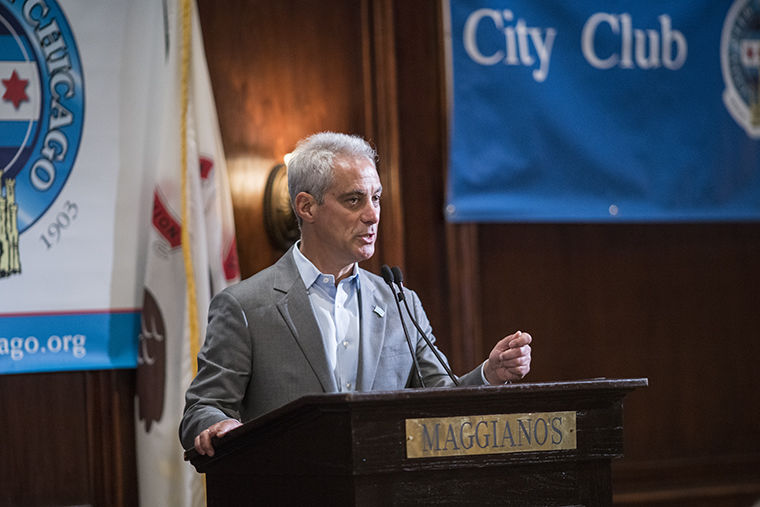Chicago to host historic climate summit
Mayor Rahm Emanuel will bring city leaders from across the globe together for the first annual climate summit to be held in December.
October 2, 2017
Mayors from around the world will assemble in Chicago to develop strategies for combating climate change at the inaugural Global Covenant of Mayors for Climate & Energy’s North American Climate Summit.
At the Dec. 4–5 summit, mayors will announce their plans to reduce their cities’ carbon footprints and commit to reducing emissions despite a lack of support from federal governments. All participating cities have pledged to meet or exceed standards set by the Paris Climate Agreement.
“I’m excited that the climate summit is bringing together local leaders from across the continents to Chicago [and] demonstrating local leadership on climate change mitigation and adaptation,” said Jamie Ponce, director of innovation at the Environmental Law and Policy Center in Chicago.
After President Donald Trump’s administration pulled the U.S. out of the Paris climate accord June 1, the burden of fighting climate change and responsibility for the country’s carbon footprint fell on cities and states. The 196-nation agreement, originally signed April 22, 2016, was a guideline for countries to follow to combat the effects of climate change.
“[It’s thrilling] to see the leadership from mayors across the country really take action on climate in the face of a federal administration,” said Kady McFadden, deputy director of the Illinois Sierra Club—an advocacy group that protects the environment through legislation and activism.
In an ideal world, change would come from both the federal and local governments working in unison, said Max Berkelhammer, an earth and environmental sciences assistant professor at the University of Illinois at Chicago. Because of the federal government’s outlook on climate change, the next steps need to be at a local level, and the climate summit is a big step for cities to fight back against the federal administration, he added.
The international summit has the backing of C40—a group of 91 cities worldwide fighting to reduce climate change. A report by C40 shows that 91 percent of C40 cities in the U.S. plan to expand their existing climate actions. These cities have increased environmental efforts across the transportation, building, waste and water sectors.
Switching to cleaner, renewable energy sources, such as solar power, having fuel efficient vehicles for public transportation and relying on cleaner energy rather than coal or natural gas are just a few of the various ways society can reduce its carbon footprint, Berkelhammer said.
Chicago received the U.S. Environmental Protection Agency 2017 Energy Star Partner of the Year Award and has pledged to make all buildings in the city operate on 100 percent renewable energy by 2025, as reported April 24 by The Chronicle. Chicago office buildings have also grabbed the top spot in energy efficiency in the 2017 National Green Building Adoption Index, as reported July 18 by the Chronicle.
“We can take action by ourselves, and [cities] can make a dent in this issue,” McFadden said, “We can do this without the president.”
Updated Oct. 3 6:30pm. The previous version of this story said C40 cities had 7,400 cities worldwide. C40 cities have 91 cities worldwide. The Chronicle regrets this error.








